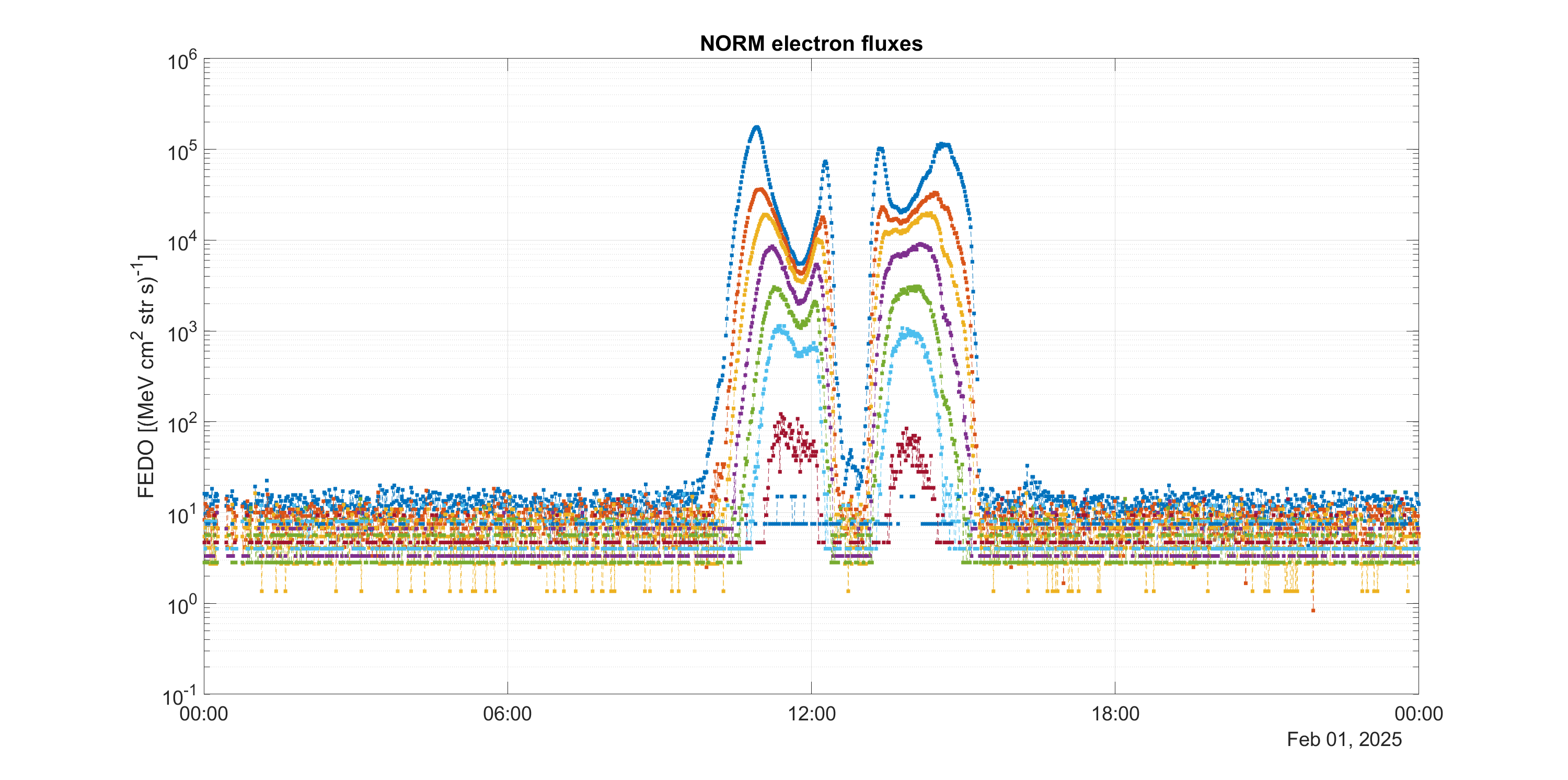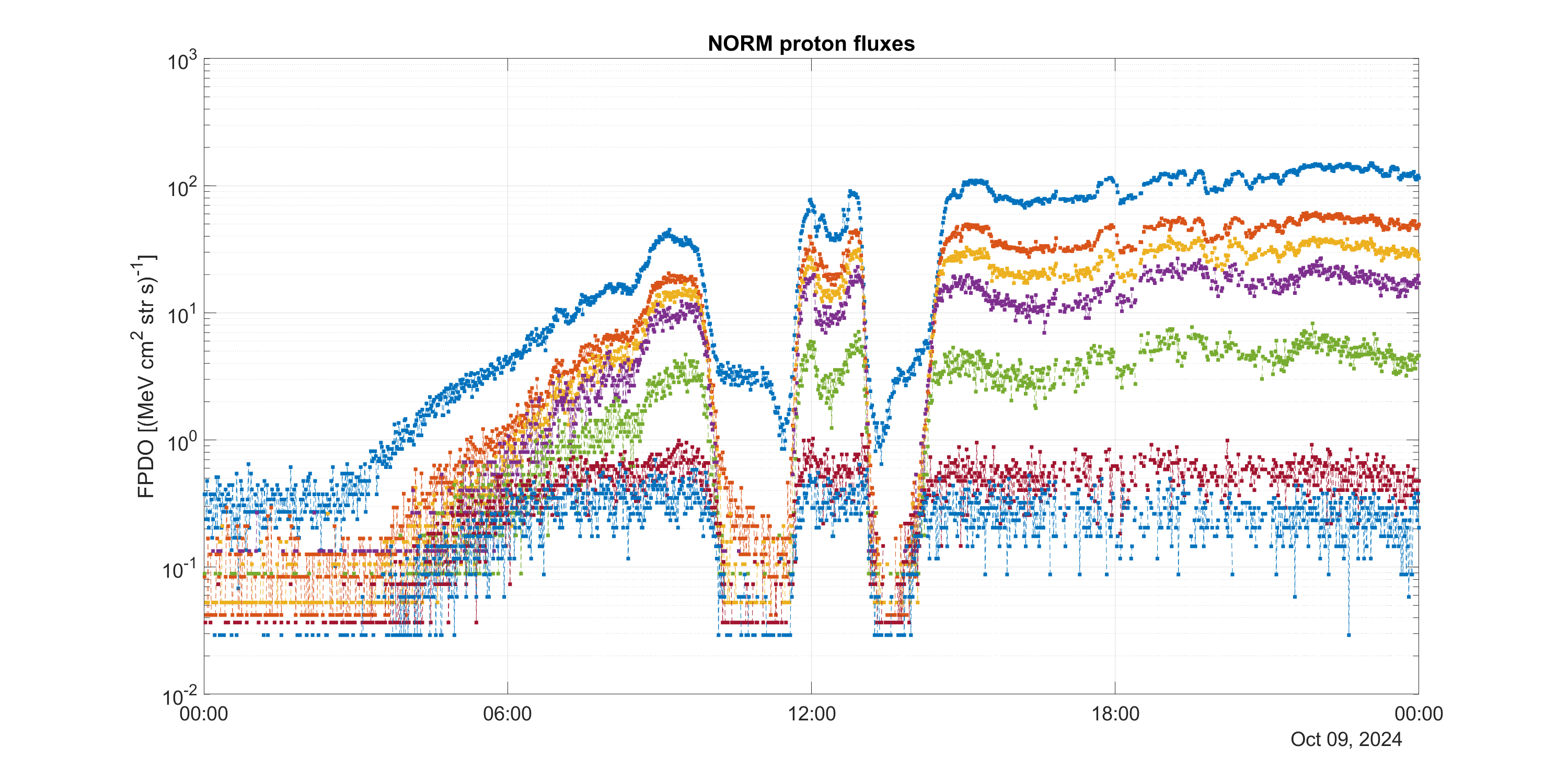The Galileo Service Centre has launched a dedicated web section for users to request access to space radiation data from the Norwegian Radiation Monitor (NORM) onboard the Arctic Satellite Broadband Mission (ASBM).
This new feature supports scientific research and the development of next-generation satellite systems.
The Galileo Service Centre (GSC) is proud to announce the launch of a new online resource providing access to space radiation data collected by the Norwegian Radiation Monitor (NORM) aboard the Arctic Satellite Broadband Mission (ASBM). This resource supports the scientific community with high-quality, high-resolution measurements of electron fluxes within the 0.4–6 MeV energy range, and of solar energetic protons within the 10–90 MeV energy range, contributing to a better understanding of the space environment and its impact on satellites and space-based systems.

NORM, developed by Integrated detector Electronics AS under an ESA contract with support from the Norwegian Space Agency and Space Norway HEOSAT, is a compact and adaptable instrument suitable for missions in LEO (Low Earth Orbit), HEO (Highly Elliptical Orbit) and GEO (Geostationary Orbit). Its data is vital for monitoring space weather conditions and planning effective radiation protection strategies — particularly for the second generation of Galileo satellites.

Accessible through the GSC Products menu, the new NORM Space Radiation Data section includes:
- An overview of the ASBM mission and the role of NORM in measuring space radiation.
- A dedicated page with technical specifications of the NORM instrument and detailed information about the radiation data available
- A secure interface for registered users to explore the data and integrate it into their research and analysis workflows.
In addition to mission details and technical documentation, it provides regularly updated data visualisations like the one shown below, illustrating variations in proton flux measured over a 24-hour period during the solar storm on October 9, 2024. This type of information helps researchers and engineers track space weather events and assess radiation exposure risks in orbit.

This new functionality marks an important step toward strengthening GNSS resilience, performance monitoring and scientific collaboration in the field of space environment observation.
Discover the NORM Space Radiation Data
Access to the NORM data is subject to compliance with the NORM Terms and Conditions and approval by the partners of the NORM mission.
About Galileo
Galileo, the EU´s Global Navigation Satellite System (GNSS), provides improved navigation, positioning and timing information. More than 4 billion users are already benefitting from Galileo.
The Galileo Programme is owned by the EU. The European Commission, as the Programme Manager, oversees the implementation of all activities. EUSPA is responsible for the operational management of the services, ensuring that they are delivered with the defined performance and without interruption. Galileo's system design and system evolution are entrusted by EUSPA to ESA .
Media note: This feature can be republished without charge provided the European Union Agency for the Space Programme (EUSPA) is acknowledged as the source at the top or the bottom of the story. You must request permission before you use any of the photographs on the site. If you republish, we would be grateful if you could link back to the EUSPA website (http://www.euspa.europa.eu).